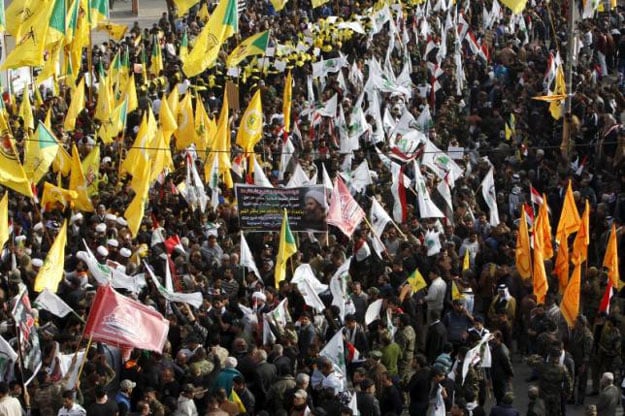
Tensions between the Sunni Muslim kingdom of Saudi Arabia and Shia Muslim Iran have escalated since Saudi authorities executed Shia cleric Nimr al-Nimr on January 2, triggering outrage among Shias across the Middle East.
Saudi-Iran tensions: Pakistan must not take sides, says Khursheed Shah
In response, Iranian protesters stormed the Saudi embassy in Tehran and its consulate in Mashhad, prompting Riyadh to sever relations. Tehran then cut all commercial ties with Riyadh, and banned pilgrims from travelling to Makkah.
Other Arab countries have recalled envoys to Iran and the United Arab Emirates downgraded relations in solidarity with Saudi Arabia.
In separate statements on its website on Monday, China's Foreign Ministry said Vice Foreign Minister Zhang Ming met senior Saudi and Iranian officials on his trip.
While in Saudi, Zhang talked about the situation between Saudi Arabia and Iran and "hopes the relevant parties maintain calm and exercise restraint, step up dialogue and consultations and jointly promote an amelioration of the situation", the ministry said.
In Iran, Zhang repeated the message about calm and restraint, adding China hopes for the maintenance of peace and stability in the region.
Pakistan offers to defuse Saudi-Iran tensions
Both countries expressed their appreciation for China's role in the region, the statements added.
While relying on the region for oil supplies, China has tended to leave Middle Eastern diplomacy to the other five permanent members of the UN Security Council - the United States, Britain, France and Russia.
But China has been trying to get more diplomatically involved, especially in Syria, recently hosting both its foreign minister and opposition officials.

1725784957-0/Tribune-Pic-(17)1725784957-0-165x106.webp)
1724760612-0/Untitled-design-(12)1724760612-0-165x106.webp)














COMMENTS
Comments are moderated and generally will be posted if they are on-topic and not abusive.
For more information, please see our Comments FAQ